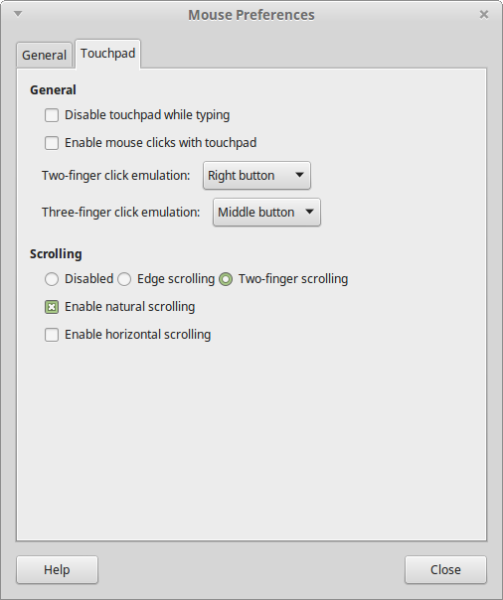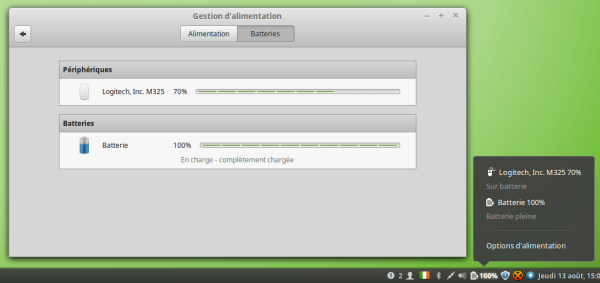Developers behind the MATE Linux desktop environment, which is based on Gnome 2 and provides a similar look and feel, announced some interesting changes they are making to future versions of MATE. They have improved touchpad and display settings as well as power management for this excellent desktop environment.
Users who are on Linux for a long time need no introduction of MATE. It inherited all functionality from its parent project, Gnome 2. It is relatively lightweight, fast and customizable. MATE is one of the two desktop environments developed by the Linux Mint team. MATE comes as the default DE in Linux Mint MATE edition.
Developers are constantly improving MATE. This time, they have added several new features to its Touchpad configuration. It has got support for 2-finger and 3-finger clicks as well as natural scrolling. Note: the "natural scrolling" feature is how you scroll on smartphones: by scrolling "upwards", you move the page up and therefore bring a portion further down into the viewport. This method is an inverted scrolling compared to how you traditionally scrolled on touchpads.
 Besides this, they have added the following improvements:
Besides this, they have added the following improvements:
- The Display Settings dialog will show output names as well as display names.
- A new "Set as primary" button was added to set the selected monitor as primary (among other things this allows you to define where MATE panels appear).
- The "Make default" button was renamed to "Apply system-wide". Also, it got a tooltip to explain what it does.
- The power manager now also shows vendor and model information, similar to what was done for Cinnamon 2.8:

Interested users can read the official blog post here and here.
Support us
Winaero greatly relies on your support. You can help the site keep bringing you interesting and useful content and software by using these options:

Just want to say I appreciate the Linux coverage. After 19 years of Windows, I see little choice but to finally make the switch and I now have Mint 17.2 Mate on a Thinkpad to start the process. Win 10 crosses the line in requiring so much aggressive customization to be half as usable (or attractive) as earlier versions and then there’s the built-in spying on top of it. Learning enough to make Linux a practical option seems easier at this point than to keep battling with Microsoft’s creations.